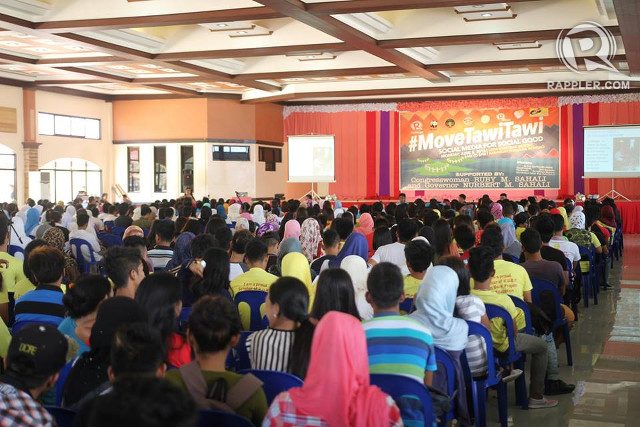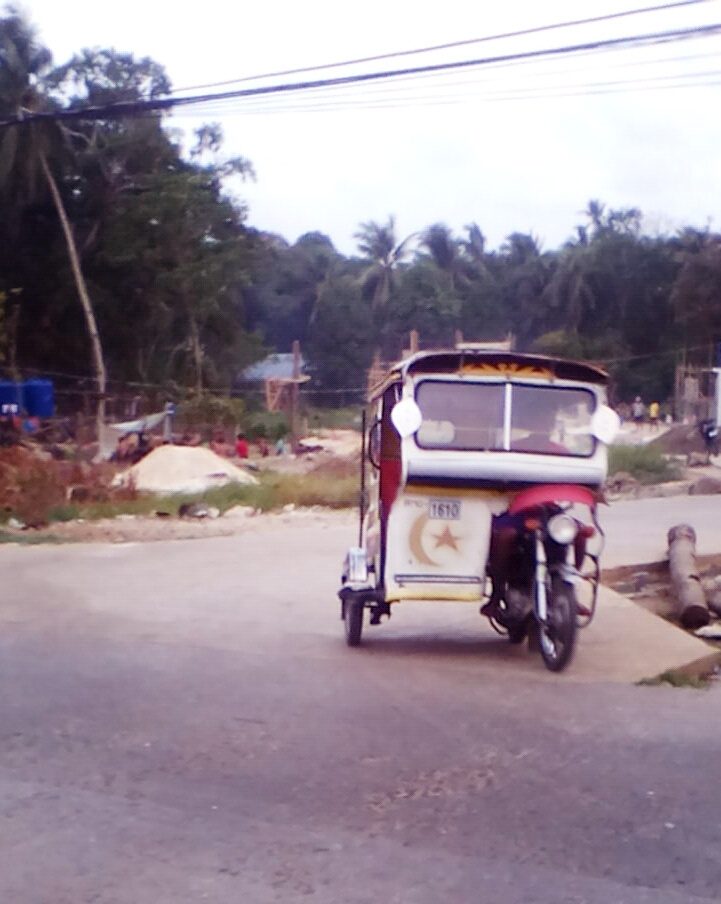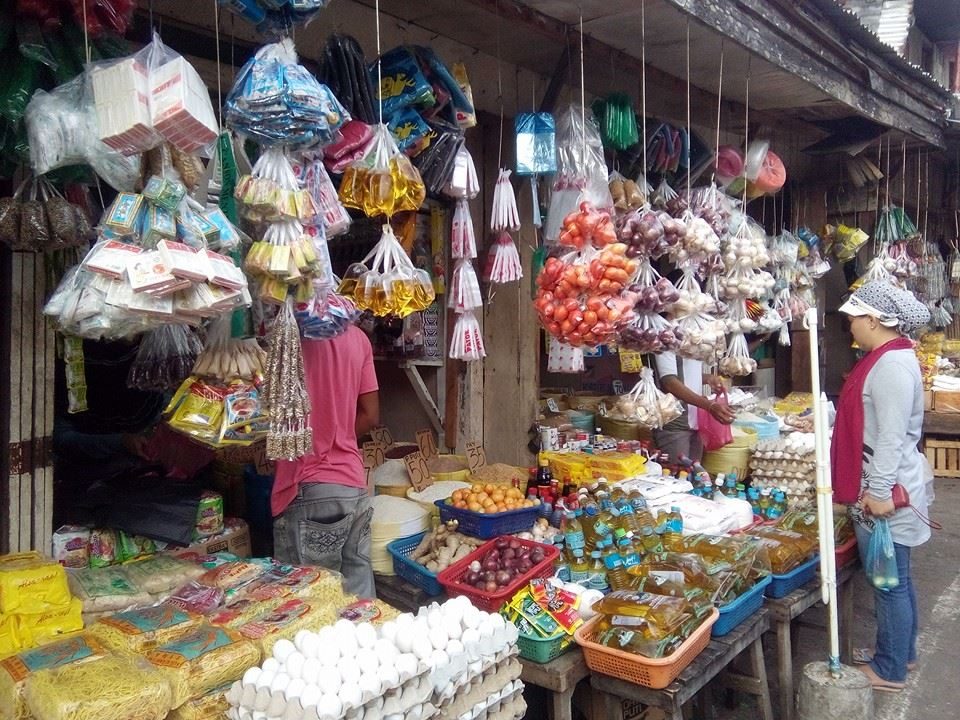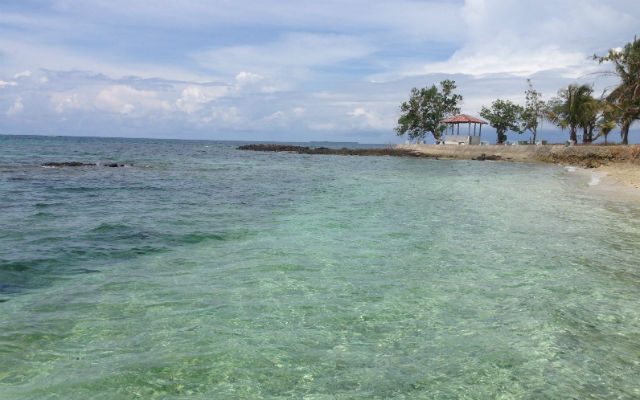SUMMARY
This is AI generated summarization, which may have errors. For context, always refer to the full article.

MANILA, Philippines – It started with a challenge to dream of a better life.
The youth of Tawi-Tawi, who gathered for a Move Tawi-Tawi workshop on June 8, 2015, were asked to identify the problems that hinder the province’s development.
In a Facebook group created after the workshop, local activists, citizen journalists, and youth leaders pointed out that transportation problems, unregulated prices and the lack of protection of the environment are just some of the major issues residents of Tawi-Tawi face.
Now, they are focusing their gaze to the future with the hopes of finding solutions to these problems.
Local transportation
According to Keith Pon, a college instructor at the Mindanao State University-Bongao Campus, the changing fare prices of tricycles, considered as the basic means of transportation in the province, is a major concern for locals.

“Lately it has been the source of frustration for many commuters. This is so because the fare, even if there is a fare matrix given by the LGU, is decided by the drivers themselves and this causes abuses on (sic) fare prices,” Pon said.
According to Pon, some drivers ask for twice the price for people living in “isolated” places, which is determined arbitrarily by the driver.
“Some will abuse travellers by asking (up to) a thousand pesos from the wharf to a place within Bongao. (This) is unacceptable and paints a bad picture of our province,” he added.
Dayanara SA of the Tawi-Tawi youth network recalled how her friend got into an argument with a driver because the latter was insisting for a price higher than what is indicated in the price matrix.
To solve the problem, Pon is suggesting to make a position paper to the local government units in the province “to strengthen their implementation of the fare matrix;” and to “sk them to require tricycle drivers to put a copy of the fare matrix in their vehicles and put sanctions for violators of such.”
Uncontrollable prices
For Nur-mukin Alih Usman, a student reporter of 94.1 Nutriskuwela Radyo Kasannangan, the price of tricycle fares is not the only problem. According to him the prices of goods in public markets in Bongao are out of control.
“As we’ve noticed, the prices here in Bongao – I don’t know in the other municipalities – is like Facebook’s newsfeed, it changes every minute if you’ll try to refresh it (ask another seller).”

He added: “But we don’t have any choice. Almost all of the basic goods we need are available only in the tabu (public market).”
This problem, according to Usman, became more prevalent during Ramadan. A tray of eggs, for example, normally ranges from P140 to P160; but since July, the price has increased upwards from P200 to P220.
Ladjabassal Kimishima, a student from MSU Science High School, said the prices of some goods increase drastically because of the short supply of food in the province, according to the vendors she interviewed.
Usman, wanting to get to the root of the problem, said he wants to write a letter addressed to the province’s leaders to control the prices in their markets.
“(This) includes posting price matrices in all the markets just to inform people about the prices, to have a functioning price control here in Bongao, and to inject some fines if necessary. I also encourage the youth to help me with this paper,” he said.
Protecting the ‘hidden gem’
Tawi-Tawi is known for its majestic mountains and beautiful beaches. But this, according to Kimishima, may soon be gone. (LOOK: IN PHOTOS: 5 places to see in breathtaking Tawi-Tawi)
“We discovered many unique sceneries here in our place and there’s a lot more we haven’t discovered. But are we really doing our part as individuals to help maintain and preserve our beaches?” the high school student asked.

Kimishima cited sand mining in places near the beaches as a big problem.
“Because of our greediness, even if it’s prohibited to get sand from our beaches, we are still doing it…We could find a right way. Something not illegal and not prohibited,” she said.
Kimishima called on the youth of Tawi-Tawi to guard their beaches. (WATCH: Trash threatens tradition in Tawi-Tawi)
“We must not be afraid to tell those people who are doing this illegal work to stop what they’re doing already. We should report them if we catch them the in act so they won’t do it again,” Kimishima said.
Information caravans for the locals would also go a long way, she added.
Related to this concern, KeiDee Catalbas believes people from Tawi Tawi take the province’s natural beauty and resources for granted.
“Our province lacks beautification and its air is a bit polluted. Beautification, an aspect of community development, can help attract tourists, business investments, and also help preserve environment,” Catalbas said. (READ: How the youth of Tawi-Tawi are fighting for the environment)
She suggested a tree planting project in the sidewalks and streets to help decrease air pollution.
“Bongao is a beautiful place already, but it will become more beautiful if we’ll start improving and taking good care of it,” she added.
Move Tawi-Tawi
These concerns were first shared on the Move Tawi-Tawi Facebook Group, which has 136 members as of this writing. The active discussions on the group show that the youth of Tawi-Tawi are truly concerned for their future.
For Terri Gonzales, Rappler’s lead movers in the province, this is a sign of hope in a land too often cast in the shadows of doubt.
“Brainstorming with the youth leaders, movers, and advocates everyday gives me faith in hope, that not everything has a price tag, and not everyone is tainted. I believe in what (they) can accomplish. (They) represent hope,” Gonzales said.
After the discussions come a bigger challenge – to turn their online conversation into real world solutions. – Rappler.com
What are the issues in your community? Tell us at move.ph@rappler.com!
Add a comment
How does this make you feel?
There are no comments yet. Add your comment to start the conversation.